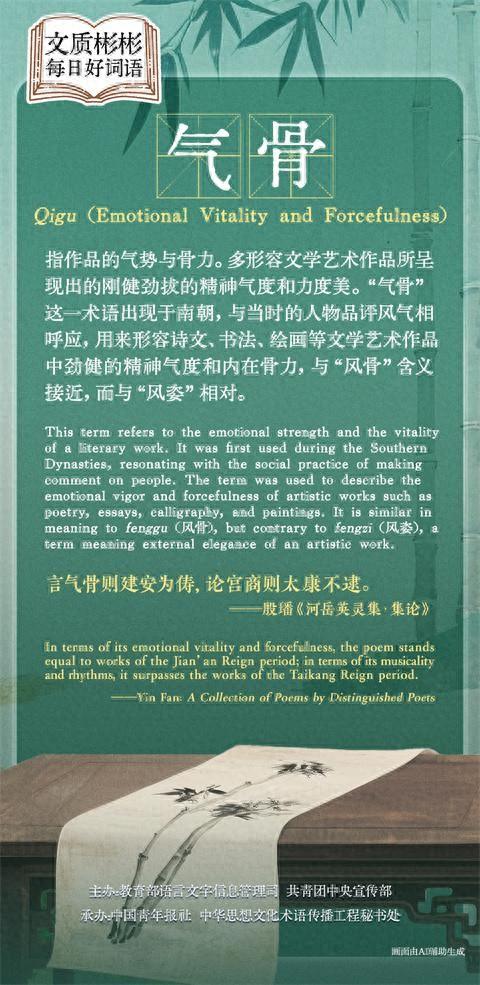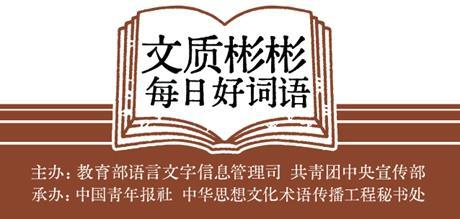
气骨
指作品的气势与骨力。多形容文学艺术作品所呈现出的刚健劲拔的精神气度和力度美。“气骨”这一术语出现于南朝,与当时的人物品评风气相呼应,用来形容诗文、书法、绘画等文学艺术作品中劲健的精神气度和内在骨力,与“风骨”含义接近,而与“风姿”相对。
Qigu(EmotionalVitalityandForcefulness)
Thistermreferstotheemotionalstrengthandthevitalityofaliterarywork.ItwasfirstusedduringtheSouthernDynasties,resonatingwiththesocialpracticeofmakingcommentonpeople.Thetermwasusedtodescribetheemotionalvigorandforcefulnessofartisticworkssuchaspoetry,essays,calligraphy,andpaintings.Itissimilarinmeaningtofenggu,butcontrarytofengzi,atermmeaningexternaleleganceofanartisticwork.
引例
言气骨则建安为俦,论宫商则太康不逮。(殷璠《河岳英灵集·集论》)(论气势与骨力,能与建安时期的作品相媲美;论音节与韵律,能超过太康时期的作品。)
Intermsofitsemotionalvitalityandforcefulness,thepoemstandsequaltoworksoftheJian/'anReignperiod;intermsofitsmusicalityandrhythms,itsurpassestheworksoftheTaikangReignperiod.(YinFan:ACollectionofPoemsbyDistinguishedPoets)
 来源:中国青年报
来源:中国青年报 海量资讯、精准解读,尽在新浪财经APP
海量资讯、精准解读,尽在新浪财经APP 编辑: 来源:
